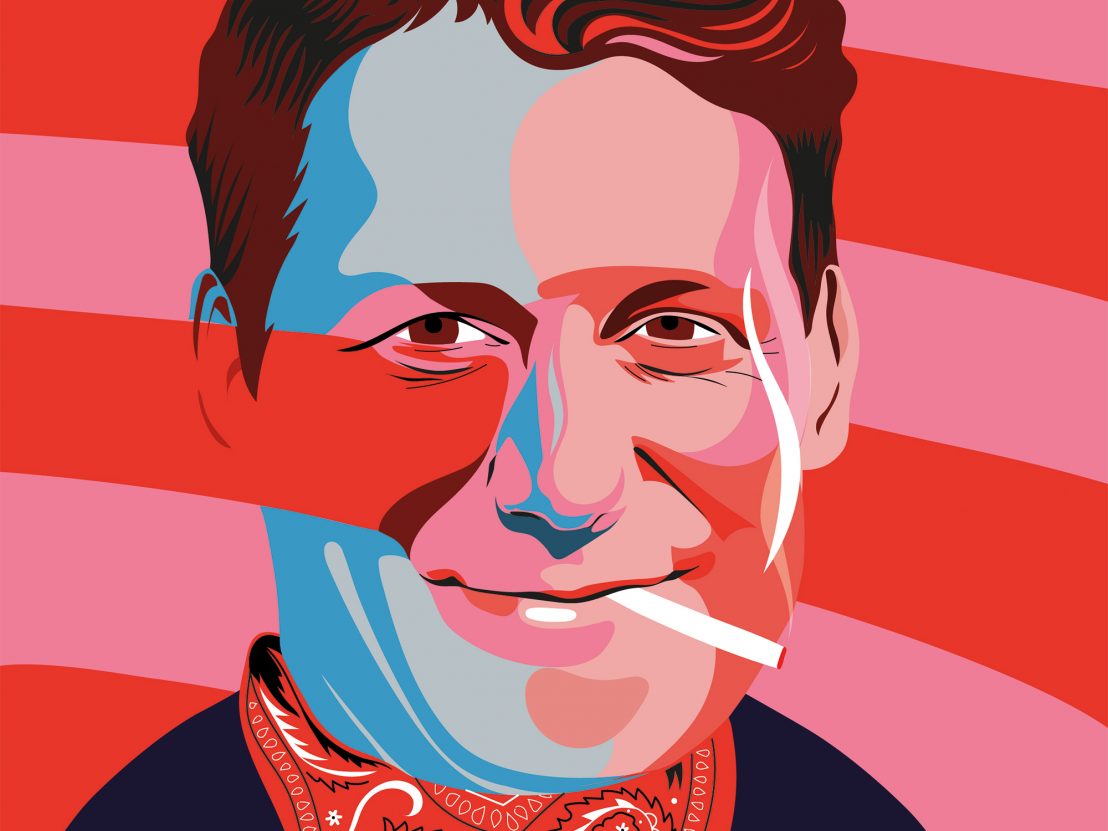
After getting his motorcycle license and pondering the story for two decades, the director of The Bikeriders explains what drew him to Danny Lyon's iconic photobook documenting the lives of a 1960s motorcycle gang.
For a long time, The Bikeriders was just a project Jeff Nichols talked about. His close friend Michael Shannon would rib him about it, pointing out that he’d been mentioning it for years and was still no closer to realising it. But finally, after some false starts, a few shifted release dates and a change of studio, his drama based on Danny Lyon’s iconic photobook about a 1960s Chicago motorcycle gang cruises into cinemas, starring Austin Butler as a rebel without a cause, Jodie Comer as his exasperated wife, and Tom Hardy as the good-natured gang leader trying to keep pace with a changing world.
LWLies: I wanted to ask you about an interview that I read in SlashFilm around 2018. You said you were in a bar with Michael Shannon, and you were talking about The Bikeriders. You said you really wanted to make the movie, and he said, ‘Oh, you’re never going to make that movie.’ Is he happy you finally got to?
Nichols: I don’t know, but he’s great. I know he’s thrilled and excited, but you know, the first film I worked on with Mike, we started filming in 2004. It was Shotgun Stories, and he was the lead of that film. And I found this book in 2003.
Oh, wow.
So I’ve probably brought it up to him for 20 years, and it really was like, ‘Nichols. Stop.’
In the interview you said you hadn’t got a script yet.
At some point it almost became like a dinner party trick. I would be like, ‘Hey, you want to hear my movie about a ’60s motorcycle club movie?’, and I would reveal these little bits and pieces, and people were like, ‘Oh, that sounds amazing.’ But then I would go home and, you know, just crawl into the foetal position, because I didn’t actually know how to make the whole thing.
Sometimes it’s great to just have an idea and just know that idea is so good.
Yes, and think ’I’m not going to ruin it by actually doing it.’ Yeah, right. I think this has been very much
true for this idea, because it really was. It lived in this beautiful place in my mind for so long, like to bring it down to earth felt like I might break it or ruin it.
But you’ve been in touch with Danny Lyon [author of ‘The Bikeriders’] for a long time.
Yeah, I think I first reached out around 2014, around the time of Midnight Special. I’d been stalking his website, Bleak Beauty, and he had just randomly one day posted some QuickTime videos of original audio. And that was really the first time that I thought I really had to do something with this. I was really
intimidated by it, because, and this might sound strange, especially being in the UK, but I felt like I couldn’t write in that accent.
It’s very distinctive.
It’s very distinctive, and it’s not just the accent, it’s the time period, which affects the word choices and everything else. Like, it just felt very foreign to me, especially being a Southerner. And once I heard these audio recordings, it was like, ‘Oh! And they’re so specific, and they’re so intense.’ Once I had heard them I thought, ‘Now I think I’m running out of excuses not to do this thing.’ So then it was really about going to meet Danny, because it’s not like you could sit down and write this film without his blessing, you know?
Of course.
And we did actually option his book of photographs, and there was some debate whether or not that
was actually necessary, because they were photographs, but it felt like the right thing to do. And I wanted not so much the details of the club, because that wasn’t really what I was after. That’s not what I was going to fictionalise. But it felt necessary to sit with them and kind of talk about the feeling of that time, which really comes across in the book, in the interviews. To get his blessing, I think, was a really big deal. There’s so much of him in the book – just down to the fact he was with these guys for such a long time. For sure. On and off and drifting back to them. And he’s so cool. I mean, he’s prolific. By the time he did this book, he’d already done incredible things. At the age of 19, he travelled down to the American South to photograph the Civil Rights Movement. He became John Lewis’s roommate and the staff photographer for the Southern Nonviolent Coordinating Committee. This was at the age of 19.
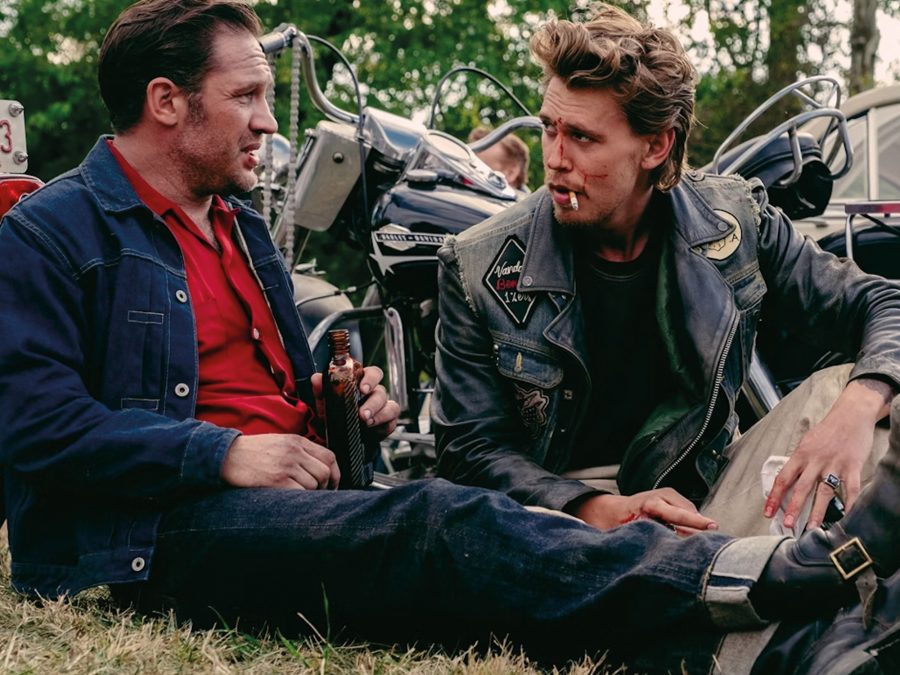
Have you ever been…
A biker? No, never. My oldest brother is a writer. And he also became obsessed with Danny’s book. And he actually wrote a song with his band called ‘Bikeriders’ inspired by the book. That was on an album called ‘Nobody’s Darlins’. And so he’s had his own kind of fascination with these photos in this book. And it prompted him to start writing. And he actually does a motorcycle tour now called The Bikeriders Tour, where he basically straps a guitar to his BMW and rides around and plays. Before I sat down to write this, I was like, I’ve got to go get my license. And I got to figure this out because I can’t be a total fraud. And it’s a very intoxicating thing, riding on a bike. Like, there is something to it. It’s kind of hard to explain. I guess I made an entire movie about it. But yeah, it’s not a culture though that – and this is going to sound strange – I’m particularly interested in.
Like modern day biker culture?
Yeah, it’s not really my thing. That is for other people to explore. I was really interested, though, in how a subculture got started and how these guys felt in Danny’s book at least. They had pretty earnest inspirations for feeling like outsiders and everything else. That I was drawn to.
There’s something very naive about that scene of Johnny watching The Wild One and thinking, ‘That guy’s really cool.’
We’ve all done that. That was taken actually from the book. There’s a photograph of the real Johnny, his kind of family scrapbook of the club. And one of the pages was a TV Guide with Marlon Brando on it. So that actually happened. I think it was kind of up to me to then turn that into not just an instigating moment for the character, but also a defining moment because… And I think Tom certainly embraced this
with his voice and everything else, but he’s just playing the part. He’s just acting like Brando and it catches up with him in very dangerous ways. He’s not really part of that world. He has a house and a family and daughters and he knows deep down he’s not really the guy on the screen.
You counter-balance the heavy male focus of the film with the inclusion of Kathy, who delivers the voiceover and offers a woman’s perspective. Why did you feel this was vital to your interpretation of the story?
Well, it helps really define what I’m trying to say about masculinity. Because she’s caught up in the same tension that I think a lot of men are caught up in, which is having an understanding about the limitations of the stereotypes of masculinity. There’s a lot of silliness that goes along with it. And so Kathy’s not just an observer in the film, she’s a participant in this tension between these two things, you know, being in love with something and being attracted to something that, at times, can be quite negative.
Did you manage to talk to any of the guys that were around at that time? How much did you chase a sense of documentary-like fidelity?
No, I didn’t. Partly we couldn’t find a lot of them. A lot of them had died. And I really wanted to talk to Kathy. And she may still be alive. I don’t know. At some point, I think I realised before I wrote it, and one reason why I took so long to write it, was this isn’t Loving. This isn’t a documentary. I’m not trying to get their story right in terms of the specific details. In fact, I don’t want to even know. Because I want to tell my own story. I want to tell a story that is somehow able to just capture this nostalgic feeling of this very specific thing at a very specific time, in a very specific place, that existed, it formed and then disappeared. And so I really didn’t want the constraints of, you know, this is really how the outlaws did it.
Published 17 Jun 2024
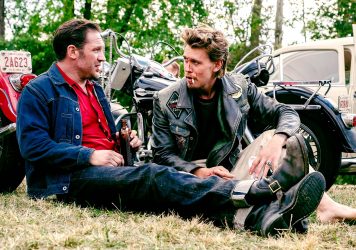
By Rogan Graham
Jeff Nichols' drama based on Danny Lyon’s photobook about a 1960s Chicago motorcycle gang finally cruises into cinemas.
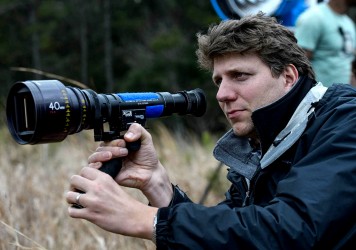
The writer/director of Take Shelter and Midnight Special offers his take on an essential filmmaking skill.
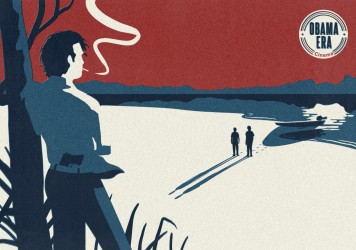
Each of the Arkansas director’s films addresses pressing social concerns affecting working-class white voters.